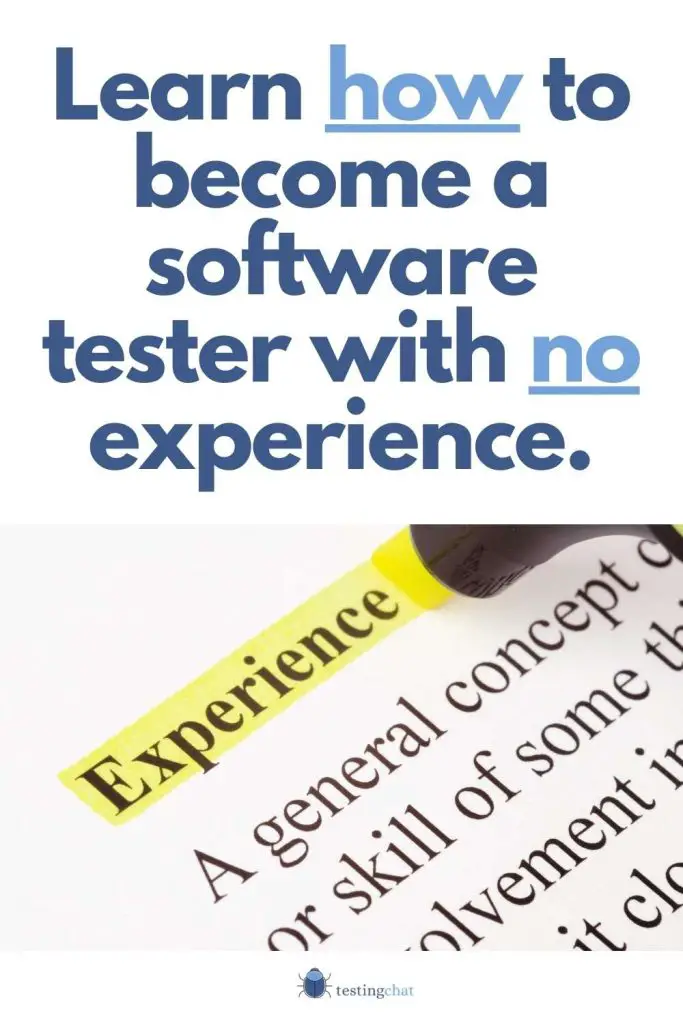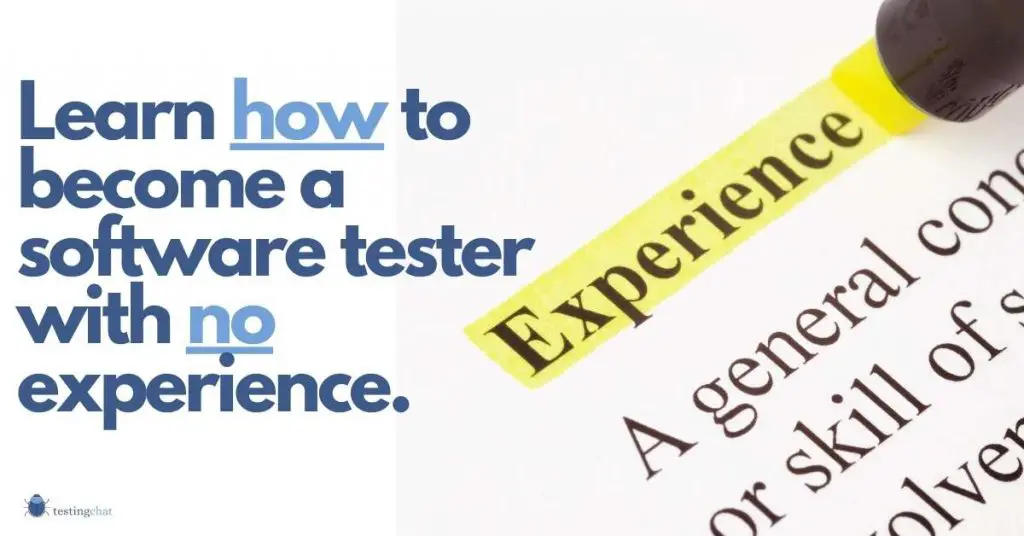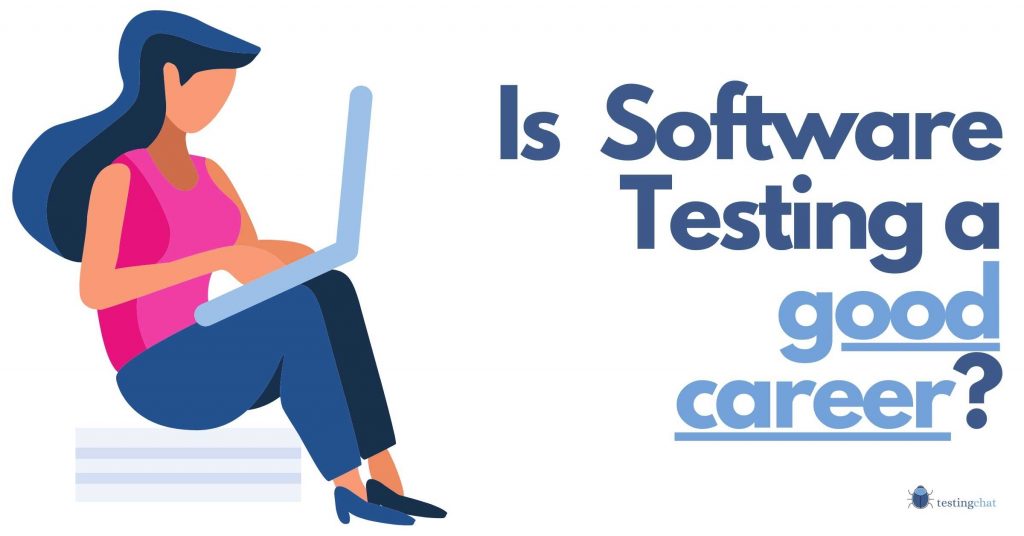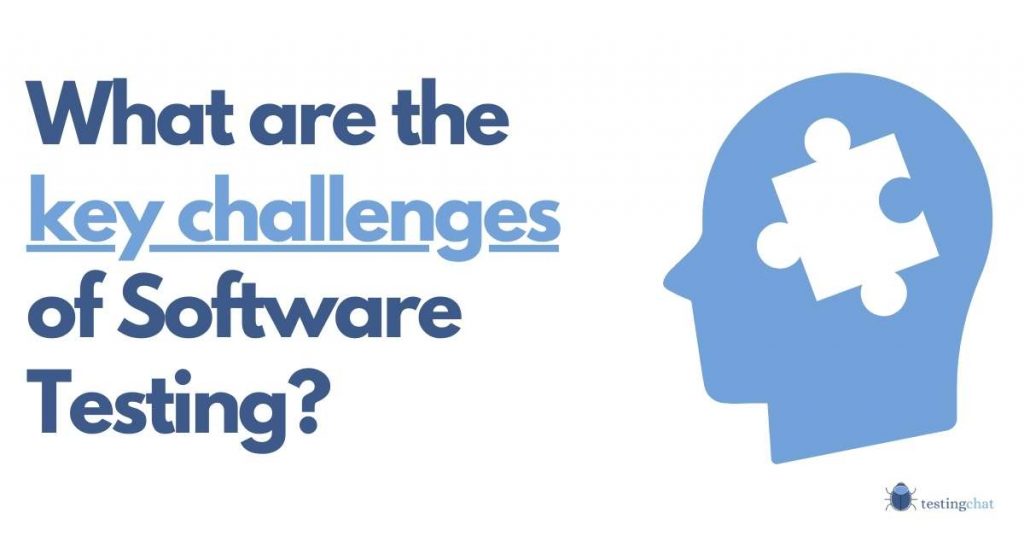
Software testing is a really good profession from a long term career and financial perspective.
But what if you wanted to go into this industry and have no experience?
The good news is that you CAN get into the Software testing industry without any background.
I get asked this question a lot and so thought I’d share some tips on how to get your foot in the door either as a newbie or transitioning from another career.
Table of Contents
Why do you want to get into Software testing?
First things first.
I won’t spend too much time writing about the reasons behind your decision.
BUT
Like with any career, have you thought about your reasons for wanting to get into the industry?
If you don’t know what is involved in software testing, then it might be worth doing some research on it first.
Are you doing it just for the money, job title or the challenge?
Or maybe all of the above?
Is it because someone told you about this ‘easy’ career?
Or is it because it’s slightly ‘easier’ than a developer role?
Whatever your motivations are, it’s worth asking yourself the reasons and being honest to yourself first before embarking on this career.
Correct Mindset and Expectations
I want to set some expectations.
Software testing isn’t just about writing tests.
It’s a mindset.
Whichever capacity you’re involved in, you’ll ultimately be trying to help solve a problem.
For that, you need problem solving skills.
You have to think on your feet and outside of the box.
It requires you to ask tough questions, be creative and use your intuition.
For me, I found this to be lots of fun and one of the reasons why I enjoy testing software so much.
Have a strategy
Starting a new career or transitioning from an existing one can be a challenge.
It’s always a good idea to have a strategy on what you want to do and how you will achieve these goals.
For example, where do you plan to be in the next two, five or ten years?
As someone just starting out, my personal opinion is that you’ll need three solid years of industry experience in a junior role.
This will give you a firm grounding and then allow you to choose which area you want to focus on.
Do you have a specific area of software testing you want to get into?
Which brings me nicely onto this topic.
If you said to me that you want to be a ‘Software Developer Engineer in Test (SDET)’ but have no coding experience, I’d probably tell you to rethink your plan.
Ultimately, the majority if not all roles will require SOME level of exposure to testing.
Similarly, with testing, there are some roles that will require a level of competence before you can consider them.
For example, Test automation where you’ll be writing tests in the form of code will require some coding experience.
Or as mentioned above a SDET.
However, this is not impossible.
Manual software testing roles are a great point of entry if you don’t have any coding experience.
So, as mentioned above, to get into a more niche specific role, you should try and aim to get a few years under your belt first in a more general testing role.
Get a professional qualification in Software Testing

I personally think that the quickest way to get yourself noticed and land a job in the software testing industry is to acquire the ISTQB foundation certificate.
This is the most renowned course in the industry.
If I’m reviewing your CV and see this qualification, it will stand out to me.
Especially if you lack industry experience.
If you’ve taken the initiative to study this course, it demonstrates a number of things.
- You are very serious about your career
- Because the course isn’t cheap enough for you to take a punt and not overly expensive, it tells me that you’re serious about this occupation.
- Willing to invest in yourself
- Willing to stand out from the crowd
- Have taken a leap of faith even when you have no background
- You have a basic grounding of Testing principles
- You can be moulded into the role if I hire you.
Do short courses in Software Testing

There are plenty of online courses that introduce you to Software Testing.
With online learning becoming part of our daily lives, there are a number of very good platforms that you can sign up to.
I would always suggest the ISTQB foundation certification first. If this is not possible then there are several other options;
Below are some platforms where you learn;
1. EDX
This is a free learning platform which I have used myself. What I love about this platform is that some of the organisations that offer free courses are world renowned Universities such as MIT.
Simply find the course you want to study and sign up to it.
Most short courses are free.
If you want to obtain a certificate then there is a small fee to pay which covers the cost of the site.
I absolutely love this site and their ethos of free education.
2. Coursera
Similar to above, the concept is the same.
Simply find a course and sign up to it.
Coursera also have courses from renowned organisations such as Google, Atlasian, Amazon and various global Universities.
3. Udemy
The courses are very affordable.
However, I’ve found most courses focus around automation, development and more technical subjects.
This shouldn’t be your first choice as this may cause confusion.
Do the ISTQB or an academic qualification in Software testing first.
4. LinkedIn Learning
Another huge resource.
There are a ton of courses you can study.
LinkedIn learning offers a free trial for the first month and then have monthly or annual price plans.
However.
You may be able to get access to the courses for free.
A number of higher educational institutes and organisations offer them for free to employees.
Honestly, if you get access to these courses then its well worth it.
I see lots of people on my network completing these courses and then sharing them.
It does look really good.
Do take advantage of this opportunity if you’re presented with it.
What I love about these short online courses is that you can study these at your own pace and from anywhere in the world.
The more you study, the more of these qualifications you accumulate and can add onto your CV.
Familiarise yourself with the principles of Software testing
In order to do any job, you need to learn the basics first right?
Similarly, understand the key concepts and foundations of software testing.
As you start to learn more, you’ll understand testing terminology in the correct context.
That sounded like a bit of a tongue twister!!!
Apply for work experience

I remember when I was 17 and studying at college.
I was broke and needed a job.
At that age, the only real option of finding a job was to work in a fast food store or a supermarket,
Working on the weekends and evenings during the week was quite popular at the time.
It was perfect for students.
There was only one problem.
I’d never worked before.
One of my closest friends who worked in a supermarket gave me a tip.
He said, apply for unpaid work experience for 2 weeks.
The business will benefit from it and you’ll get two weeks of work on your CV.
It’s not like you’re going to be doing anything anyway during the summer holidays is it?
So I applied and waited.
Low and behold.
They accepted my offer.
I think this was around June or July time.
I’d been put on ‘produce’. A VERY tough department.
I had to lift crates full of fruit and vegetables that weighed more than me, put them out and also serve customers.
In addition to that, there were lots of other tasks such as cleaning the shop floor etc.
After the two weeks were up, I got a pat on the back and was ready to leave.
Before I left, I spoke with the head of ‘HR’.
I asked her if she would consider me for any part time roles if they became available.
She told me that the waiting list was quite long but yes she would.
I still remember it like yesterday even though it was over 25 years ago.
About a week later I got a call asking me to come in for an interview.
I did the interview, got offered the job on the spot and signed a contract there and then.
A few weeks later, I believe this was in August I started a part time job in one of the largest supermarkets in the country.
It’s amazing how my friend’s advice helped me to land a job without any experience.
Sometimes you have to use a bit of initiative and go outside of your comfort zone to get what you want.
I’d bypassed dozens, if ot hundreds of people in the queue.
I’m assuming this was because HR spoke to the Produce Manager and he gave me a glowing reference.
The moral of the story is, don’t wait for the opportunity but create the opportunity.
Unpaid work is a REALLY good way to get into the industry.
Below are a few ways you can do this.
Free short term unpaid work placement
As I mentioned above.
Pick out a few firms that you know have a Test Function and just apply to work for them free of charge for a few weeks.
You can tell them that you are looking to gain valuable experience but also tell them how they can benefit from you.
It’s a win-win situation for both parties.
Expect a really junior role but it doesn’t matter at this stage.
You may have to write quite a few application letters.
If you do get offered a placement, work your socks off like you’re about to get offered a job at the end of it.
With this kind of mindset, who knows. Anything is possible.
I would say anything between 2-4 weeks is good if you’re paying for everything yourself.
If they pay for expenses then you may be able to stretch this a bit longer.
Always leave on a good note.
What I particularly like about this approach is that both parties benefit.
For you in particular, this will give you an idea whether this is really the right career path for you.
Sandwich year Work Placement (in between your studies)
As a student, one of the BEST ways to get industry experience is to take part in a Sandwich year.
This is where a 3 year degree for example is stretched out to 4 years to accommodate 1 year for a work placement.
I won’t go too much into detail here but your higher education institute should be able to give you more details on this.
A lot of firms offer placements but remember to check out their individual requirements.
I’ve worked with many students that started in junior roles and are now in very successful careers.
I believe that their work experience had a major part to play in this.
Internship
An internship is essentially a cut down version of a work placement but without being paid.
Usually they last a few months and you don’t get paid. This depends on the organisation though.
If you can get yourself an internship then this is also an excellent way of getting your foot in the door.
Ideally this approach is suited more towards students.
However, if you’re not a student, there’s nothing stopping you from giving it a go.
Reach out to Professionals on Networks like LinkedIn and get advice

Professional networks such as LinkedIn are a goldmine.
Regardless of who you are, LinkedIn is a great way to connect to lots of people in the software testing industry.
You can either follow or connect with those you feel that can help you with your career.
If you feel confident then you may want to message connections and ask them specific questions about the testing industry.
Just remember to be respectful, always introduce yourself and give them a heads up on the purpose of your message.
I get messages on LinkedIn all the time asking for a job even though my profile states I am NOT a recruitment agent.
Oh and plenty of sales emails too.
It’s really annoying.
I tend to remove these types of connections.
Don’t be like those people.
Find A Mentor
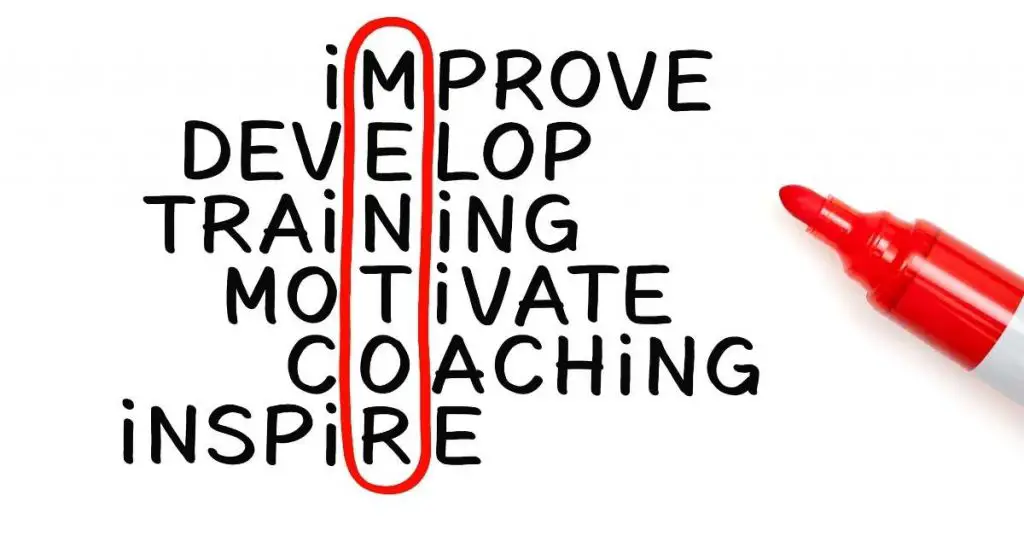
I wish I had a mentor early on in life.
It would’ve saved me a ton of time in reaching my personal, business and career goals.
Mentors are great as you always have someone you can call or message if you need any advice.
Software Testing is no different.
You can go online and either use LinkedIn or social media to find someone.
Adding to my point earlier about connecting with people on LinkedIn, it’s a great platform to find a mentor.
Buy software testing books
I’ve learnt a lot from books.
There is no reason why you can’t either.
Grab yourself some software testing books and you can learn at your own pace.
Probably the best testing book that you can buy is the ISTQB foundation certificate book. This is a great introductory book to testing and will teach you all the basic fundamental principles.
Roll your sleeves up and learn yourself at home

Watching videos, reading books and learning online is all fantastic.
However, one of the best ways to learn software testing is to literally do it yourself.
It may not be possible to test a system at home, but it’s very possible to familiarise yourself with learning some of the tools.
Automation tools like selenium are great to learn and FREE.
You may also want to either create or download test artefact documents such as a requirements traceability matrix, test plans and test strategy documents.
A defect log is also a good document to create/download too.
Create requirements, test cases and also raise defects.
If you can learn how to populate these documents, then this will put you in a really good position to understand how the process works.
With tools, as long as you can learn the basic underlying principles, most tools will offer very similar features as the goal is usually the same.
Test an Existing Commercial Off the Shelf Software Solution
If you’re REALLY enthusiastic about what you’ve learnt, why not put your newly acquired skills to the test…literally?
Find an existing piece of software, an app or a website.
Test it.
Web forms are a good example. So are online calculators that do some ‘thing’.
Or is there a piece of software you use where you always find errors or problems?
Jot down your results.
If you find any defects or issues, log them in a defect log.
This exercise will help you understand the process better and help connect all the dots when it comes to the test process.
By the way, if you’ve found issues, you can also reach out to the developer or company that made the software and send them your feedback.
They’ll really appreciate it.
I often do this whenever I see an issue or if I have a feature request for software.
You never, know, you might find that the issue you raised is fixed as part of a future release.
Not only will it feel good but you can put it on your CV.
Your existing IT skills may be transferable into a Quality Assurance and Software Testing role
If you come from an IT background, transferring to a software testing role shouldn’t be too difficult.
For example if you’re a developer or a business analyst, you’ll already be familiar with the software development lifecycle and the process of building software.
Project managers can also move into software testing and I know many who have become successful Test Managers.
Join FaceBook Groups
Aside from watching cat videos, Facebook can be a really good source of learning.
There are many groups which you can join and learn about software testing.
The real power of social media, especially if you’re learning comes from the online communities.
If there are particular questions you have, you can search and see how others have responded with real life experiences.
Join the Conversation on Twitter
Twitter is also a great place to engage with other software testers.
The rawness of Twitter means you can engage with people and listen in on all kinds of conversations.
I find Twitter a very powerful tool and a great way to engage with those in the industry.
Watch YouTube Videos
I’ll admit it.
I watch a LOT of Video.
Not just for leisure but for learning.
I bet you do too.
There’s probably videos about every conceivable subject you can think of.
Software testing is also one of these many subjects.
You can learn anything from the basics to advanced tutorials on absolutely everything.
I don’t know about you but I’m a visual learner and tend to absorb video better.
When you watch videos, your learning is more engaged and feels more like a practical lesson.
Quicker learning can mean acquiring knowledge faster.
This will allow you to understand terminology in the right context.
It’s handy for interviews too.
Read Blogs (like this one)

There are tons of resources online when it comes to Software Testing.
Blogs like this (sorry for the shameless plug) can help give you the information you need to help your career.
You’ll often find blog posts that cover specific topics in detail.
Many magazines also have an online presence too.
If you want to look at something more academic, there are thousands of peer reviewed articles, journals and conference papers you can read.
What kind of roles can I expect to get with no experience?
Below are the kind of roles you can expect to apply for with little of no experience of software testing. It should be no surprise they’ll be quite junior.
- Junior Software Test Analyst or Junior Test Engineer
- An apprentice
- QA Engineer
- UAT Analyst
- Mostly Manual testing based roles (as the barrier to entry is slightly lower)
Speak to a specialist Testing/QA recruitment consultant
Recruitment consultants tend to sometimes get a lot of stick.
However, if you speak to a specialist Testing/QA recruitment organisation, you’ll be able to get some really solid advice.
They should also give you an idea of the market, expected salaries and more importantly long term and trending skills that you can focus on building.
Freelancing and working from home

Covid-19 has really changed the way we work for good.
A lot of people now prefer to work from home.
I know I do.
If you want to get your feet wet, maybe try freelancing online.
There are a number of online job platforms where you can do some short term paid work.
This will not only help you gain valuable experience but confidence too.
You can maybe start with some junior level roles in Software testing and then work your way up.
Just start with roles that you feel most comfortable with.
Frequently Asked Question’s
It depends.
Sorry, I hate those types of answers to, but it honestly does.
If you plan to work in test automation or test driven development then the answer will be yes. Unfortunately you wont be able to hide the fact that you can’t code.
However, in addition to learning how to code, you should ideally familiarise yourself with SQL (structured query language) and any scripting languages such as JavaScript or Python which can REALLY help jump start your career.
Summary
So in summary.
Can you become a software tester without any previous experience? The answer is yes, absolutely.
However, you must understand that in order to get a role, there is an onus on you to acquire knowledge to help you obtain a role.
Be proactive.
There may be particular roles for example where you DO need some experience such as coding.
I hope some of the strategies above really help your Software Testing career journey.
I’d love to know which stage you’re at in your career and whether you managed to get into a career in software testing without any experience.
